Summary
- This week in crypto policy news, while UK examines the potential of the digital pound, the UK House of Commons Treasury Committee warned against overstating a digital pound’s ability to improve financial inclusion,
- Crypto.com receives authorization from the UK’s Financial Conduct Authority (FCA) to operate as an electronic-money institution,
- The Monetary Authority of Singapore (MAS) plans to begin piloting the digital currency “E-CNY”, also known as the digital yuan, in collaboration with China to encourage tourism spending.
- For those who want to share this update, view the crypto policy roundup on Twitter and LinkedIn.
UK Studies Pros and Cons of ‘Digital Pound’
The UK House of Commons Treasury Committee published a report examining the potential introduction of a CBDC in the UK, known as the digital pound. The report finds some potential benefits from a digital pound but concludes the extent of these benefits is currently unclear. It highlights risks around financial stability if people switch bank deposits to digital pounds, and around privacy given the transaction data a CBDC could provide.
The Committee is pushing for lower limits for individual holdings and for the government to create a digital pound that can bear interest. This would put a digital pound at odds with other CBDCs proposed in the EU and other jurisdictions which are currently proposed to be non-interest bearing.
Furthermore, the Committee supports consultative work on a digital pound design, to enable launch if benefits crystallise and risks are mitigated. But the report states that the policy decision must remain open and subject to rigorous cost-benefit analysis, rather than viewed as an inevitable next step. The Bank of England’s costs are apparently already significant and building a digital pound infrastructure would require major further investment.
The report also cautioned against overstating a digital pound’s ability to improve financial inclusion, given the UK’s exiting progress on access to bank accounts. It notes risks to those currently reliant on cash if a digital pound hastens its demise.
Overall, the Committee argues that the case for a UK retail CBDC is not yet proven. It wants to see more evidence on likely benefits versus risks before any decision to build and launch a digital pound.
EBA Aims to Enhance Management of Conflicts of Interest by ART Issuers
On 7 December 2023, the European Banking Authority (EBA) released a consultation paper on draft regulatory technical standards (RTS) regarding conflicts of interest for issuers of asset-referenced tokens (ARTs) under the Markets in Crypto-Assets Regulation (MiCAR).
The draft RTS are aimed at enhancing the management of conflicts of interest by ART issuers to achieve uniformity in requirements across the EU. These issuers are mandated to establish robust policies and procedures for identifying, managing, preventing, and disclosing conflicts of interest.
The guidelines specify that ART issuers must consider circumstances that may influence their impartiality or that of their connected parties. Special emphasis is given to conflicts related to the reserve of assets, personal transactions, and ensuring that remuneration policies don’t create conflicts of interest. The draft RTS also highlights the responsibility of issuers’ management bodies in defining and adopting these policies and procedures.
This consultation is part of MiCAR’s third batch of policy products. Stakeholders can submit comments on the EBA’s consultation page until 7 March 2024.
Meanwhile, when it comes to the European digital identity, the European Parliament’s industry committee (ITRE) voted on the E-IDAS proposal agreed recently in the trilogue. Final procedural steps will be full EP sign off and council adoption before OJ publication, circa Q1 2024.
Crypto.com Secures UK License as Electronic Money Institution, Expanding E-Money Offerings
Crypto.com has obtained authorization from the UK’s Financial Conduct Authority (FCA) to operate as an electronic-money institution, a significant step in its expansion efforts. Announced in a press release, this license will enable Crypto.com to offer e-money products in the UK, furthering its reach in a market that the company deems crucial for its business and the broader crypto industry.
Commenting on the development, Kris Marszalek, CEO of Crypto.com said, “The UK has and continues to be a hugely important market for our business and the greater industry.”
Previously registered as a crypto business by the FCA under the name Forsigfs UK in August of the previous year, Crypto.com ambition aligns with the country’s to become a crypto hub.
This move is part of Crypto.com’s ongoing strategy to comply with regulatory standards globally. The exchange has already achieved notable regulatory milestones, including obtaining licenses in Singapore and being regulated as a derivatives clearing organization by the US Commodity Futures Trading Commission. Additionally, Crypto.com holds registrations and licenses in France, Dubai and other jurisdictions, reflecting its commitment to legal compliance in its operations.
Societe Generale’s Forge Appoints Flowdesk as Market Maker for New Stablecoin EURCV
Societe Generale’s digital currency platform, Forge, has selected Flowdesk as the market maker for its newly introduced euro-based stablecoin, EUR CoinVertible (EURCV). This collaboration marks a significant step in the realm of stablecoins, with EURCV being the first of its kind backed by a major European financial institution, Societe Generale.
Guilhem Chaumont, CEO and co-founder of Flowdesk said, “Looking ahead as we approach 2024, we envision a transformative impact where compliant blockchain-based operations by institutions will drastically increase in volume – and this is what we have been preparing since the inception of Flowdesk.”
This announcement is noteworthy as EURCV is not the first euro-denominated stablecoin, but it stands out due to the significant institutional support from Societe Generale. Other Euro stablecoins, such as those launched by Circle and Tether, exist but have relatively low trading volumes.
Sotheby’s Ventures into Bitcoin Ordinals with Inaugural BitcoinShrooms Art Auction
In a groundbreaking move, Sotheby’s, a prestigious art auction house, announced its first-ever auction of Bitcoin Ordinals, featuring the BitcoinShrooms collection by the anonymous artist Shroomtoshi.
The collection, minted on-chain, is celebrated as the first of its kind and embodies a pixelated recap of Bitcoin’s history, from technical elements to pop culture references. This initiative marks Sotheby’s entry into the digital art space tied to cryptocurrencies.
Coinbase Wallet Streamlines Global Money Transfers with User-Friendly Updates
Coinbase Wallet has significantly streamlined international Money transfers by integrating user-friendly features that make sending funds easy. Users can send money across borders using a link shared through messaging or social apps, eliminating traditional banking complexities, fees and delays. This feature will be supported in over 170 countries and offers local fiat onramps in more than 130 countries, including popular regional payment methods.
The wallet also enables fee-free transactions in numerous cryptocurrencies, including USDC, and has introduced a simplified mode for beginners.
Meanwhile, the Brazilian bank and the country’s largest lender, Itau Unibanco, has launched a crypto trading service as it enters the market for the digital asset’s exchange. Itau Unibanco’s new investment service will allow trading of Bitcoin and ether, while it plans on adding others soon.
Commenting on the development, digital asset head Guto Antunes said, “It starts with bitcoin, but our overarching strategic plan is to expand to other crypto assets in the future.”
APAC: Singapore Makes Major Moves
MAS Plans to Pilot China’s E-CNY
The Monetary Authority of Singapore (MAS) plans to begin piloting the digital currency “E-CNY”v, also known as the digital yuan, in collaboration with China to encourage tourism spending. The two countries first signed a Memorandum of Understanding to work together back in 2020. The digital currency project is developed by the People’s Bank of China, MAS and the Digital Currency Institute of the People’s Bank of China. It aims to allow digital currency travelers from both countries to use E-CNY for tourism spending in both Singapore and China.
China’s e-CNY, a digital version of the renminbi, is designed to cater to the public’s need for cash in the digital era, improving payment system efficiency and fostering financial inclusion. The e-CNY system, backed by the People’s Bank of China (PBoC) aims to enhance central bank payment systems’ efficiency, provide redundancy to retail systems, and support equal access to digital payments.
Furthermore, e-CNY is positioned as a public good to bridge the digital gap in payments, offering offline functionalities, lowering costs, and supporting fair competition in the retail payment market.
DigiFT Gains Singapore’s MAS Approval, Pioneering in Automated Market Making
DigiFT, a digital assets exchange, has achieved a significant regulatory milestone by receiving approval from the MASv to operate collective investment schemes and secondary-market trading.
Founder and CEO Henry Zhang said, “DigiFT is the first exchange with an automatic market making (AMM) mechanism to have been admitted into the MAS FinTech Regulatory Sandbox.”
“The MAS admits innovative business models to their regulatory sandbox to observe such models within a controlled environment, and one needs to graduate from the sandbox in order to receive full licenses,” said Zhang. “No other business model with an AMM mechanism has been admitted to the sandbox. As the first regulated exchange on the public blockchain to use an AMM mechanism for secondary trading, we will continue to push the frontier of innovation, including with the tokenization of real-world assets.”
The platform, built on the Ethereum blockchain, will offer secondary trading liquidity for security tokens backed by real-world assets, allowing investors to trade on-chain assets using fiat currency or stablecoins.




